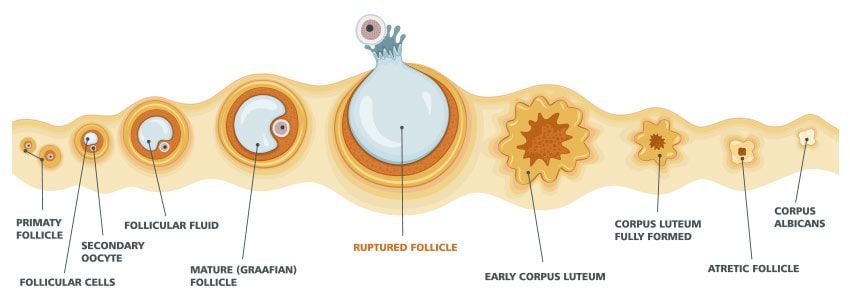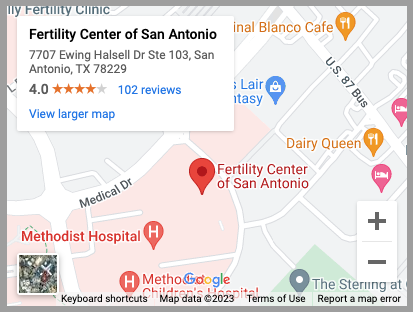Discover your path to parenthood today.
Understanding Anovulation & How It Affects Fertility
Anovulation occurs when an oocyte or egg is not released during menstruation for three months or more. While it is common for women not to ovulate for a month before returning to their regular menstrual cycle the next, chronic anovulation is more of a concern because of its negative impact on fertility.
If you are struggling with infertility, anovulation may be the cause. At the Fertility Center of San Antonio, our skilled team of fertility specialists uses state-of-the-art tools and techniques to provide accurate diagnosis and treatment at our office in San Antonio, TX. For over 30 years, we have upheld the highest standards of care and compassion.
What Causes Anovulation?
Because fertility relies heavily on a complex interaction of hormones, anovulation is typically the result of multiple factors. Some of the most common include:
- Disruption in the Hypothalmic-Pituitary-Ovarian (HPO) Axis: Disorders affecting the brain, pituitary glands, and ovaries can all impact how your entire body operates. Ovulation is often just one of many processes affected.
- External Factors: External factors such as stress, nutrition, certain medications, and significant weight gain or loss can all interfere with the proper balance of hormones, potentially contributing to anovulation.
- Premature Ovarian Failure: Women with this condition suffer from abnormal function of the ovaries before the age of 40, causing an irregular cycle or halting the cycle completely.
It is also important to note that using hormonal contraceptives actually induces anovulation as long as you continue the medication, potentially impacting intentional attempts to become pregnant. Additionally, anovulatory cycles increase as you approach menopause.

Are You Experiencing Anovulation?
The first sign that you may be experiencing anovulation is irregular periods. However, this can be indicative of a variety of conditions, such as oligoovulation. If you notice a pattern of irregular periods or significantly shorter or longer menstrual cycles, you may want to monitor your ovulation. You can use ovulation tests and basal body temperature charts at home.
In many cases, changes in your diet and lifestyle can be implemented to restore normal ovulation and address fertility issues.
However, to definitively identify whether you are suffering from anovulation, you should seek a proper diagnosis from a specialist.
Receiving a Diagnosis
Our doctors use the latest equipment and testing to provide our patients with the most accurate diagnostics. To evaluate ovulation, our doctors will typically conduct ultrasound examinations and blood tests.
Treating Anovulation
First and foremost, it is essential to identify the cause of anovulation. Once a diagnosis is complete, we can help you develop a personalized treatment plan. In many cases, changes in your diet and lifestyle can be implemented to restore normal ovulation.
If normal ovulation can be recovered, it should also reestablish your fertility, However, if it does not, we can perform further testing and offer a full spectrum of fertility solutions to address many different causes of infertility.
Trusted Fertility Care
If you are experiencing irregular periods or difficulty conceiving, you should schedule a consultation as soon as possible by contacting us online or calling us at (210) 692-0577. Our team is passionate about helping you overcome fertility obstacles. We are confident that we can help you address your condition or find an alternative method to begin your family.











